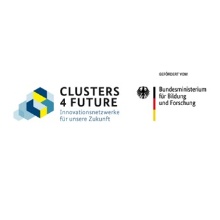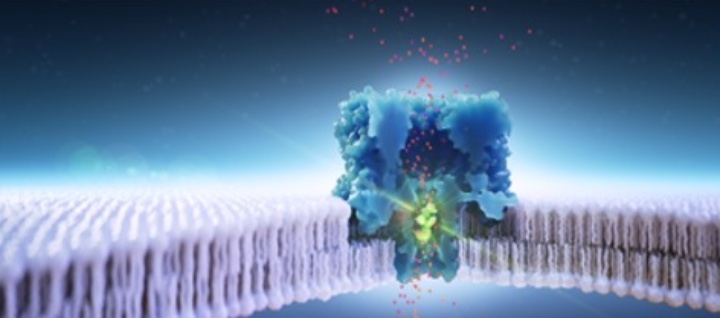Biological nanopores are an exciting new class of biosensors that will be used for molecular diagnostics in the future to identify epigenetic factors and so-called post-translational modifications (PTM) of proteins that are causally involved in common and often fatal diseases such as cancer, diabetes, cardiovascular, mental, neurodegenerative and infectious diseases. Until now, these factors and modifications can only be detected using complex mass spectrometry or error-prone immunoassays. Miniaturized analysis systems on the basis of nanopore technology will be able to determine them much more easily, quickly and reliably.
Within the BMBF Cluster 4 Future initiative “nanodiag BW", the Institute of Biophysics at the University of Stuttgart offers a PhD position (E13 TV-L, 2/3) for a period of three years to work on the following project:
»OPTICAL DETECTION OF SINGLE-MOLECULE NANOPORE INSERTION INTO MEMBRANES«
For this challenging project, we are looking for a talented and motivated student with a strong interest in membrane biophysics, protein biochemistry or chemical biology who wants to apply integrative nanotechnology design principles from the bottom up. The candidate should have a Master's degree in physics, chemistry, chemical biology, biochemistry or biotechnology, microsystems engineering or equivalent and either basic knowledge in biophysics, including e.g. single molecule imaging, MATLAB/ImageJ programming and/or electrophysiology, or a biology background with experience in molecular biology and biochemistry of membrane proteins.
Applications should include:
- Curriculum vitae with your name, address, degree(s) with transcript(s) of grades, research experience, educational and employment history. Please include any awards, distinctions and publications.
- Motivation letter
- Name and e-mail address of two academic references
The preferred starting date is as soon as possible.
Contact:
- Stephan Nussberger, Institute of Biophysics (https://www.bio.uni-stuttgart.de/en/biophysics, nussberger@bio.uni-stuttgart.de)
References:
- Cluster 4 Future Initiative https://www.hahn-schickard.de/en/nanodiag
- Wang et al. (2023) J. Vis. Exp. 192: 1-21, e64970
- Wang et al. (2022) Nature Bioengineering Community Blog Post
- Wang et al. (2022) Commun. Biol. 5: 471, 1-11
- Ensslen et al. (2022) J. Am. Chem. Soc. 144: 35t, 16060-16068.
- Ouldali et al. (2020) Biotechnol. 38:176-181.
- Bausewein et al. (2017) Cell 170: 693–700.
At the University of Stuttgart, we actively promote diversity among our employees. We have set ourselves the goal of recruiting more female scientists and employing more people with an international background, as well as people with disabilities. We are therefore particularly pleased to receive applications from such people. Regardless, we welcome any good application.
Women who apply will be given preferential consideration in areas in which they are underrepresented, provided they have the same aptitude, qualifications and professional performance. Severely disabled applicants with equal qualifications will be given priority.
As a certified family-friendly university, we support the compatibility of work and family, and of professional and private life in general, through various flexible modules. We have an employee health management system that has won several awards and offer our employees a wide range of continuing education programs. We are consistantly improving our accessibility. Our Welcome Center helps international scientists get started in Stuttgart. We support partners of new professors and managers with a dual-career program.
Information in accordance with Article 13 DS-GVO on the processing of applicant data can be found at https://careers.uni-stuttgart.de/content/privacy-policy/?locale=en_US



